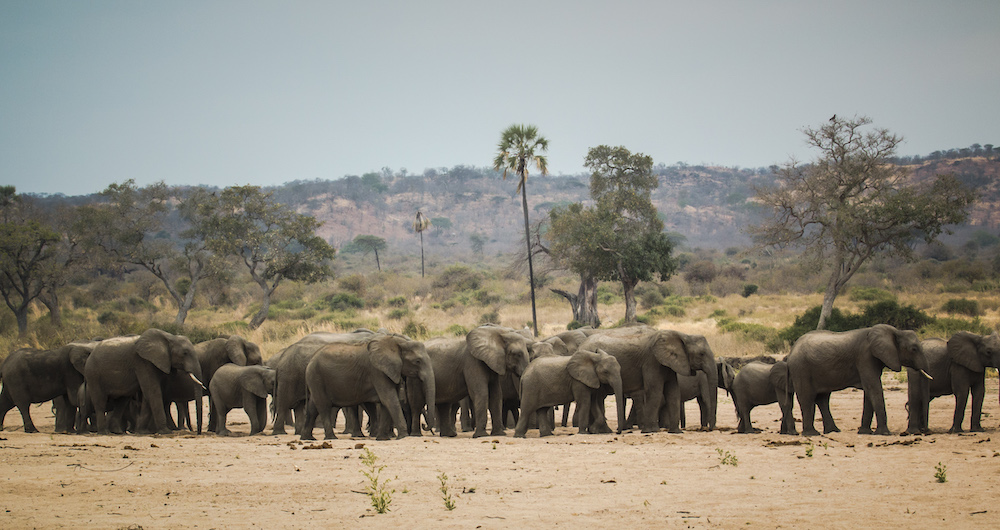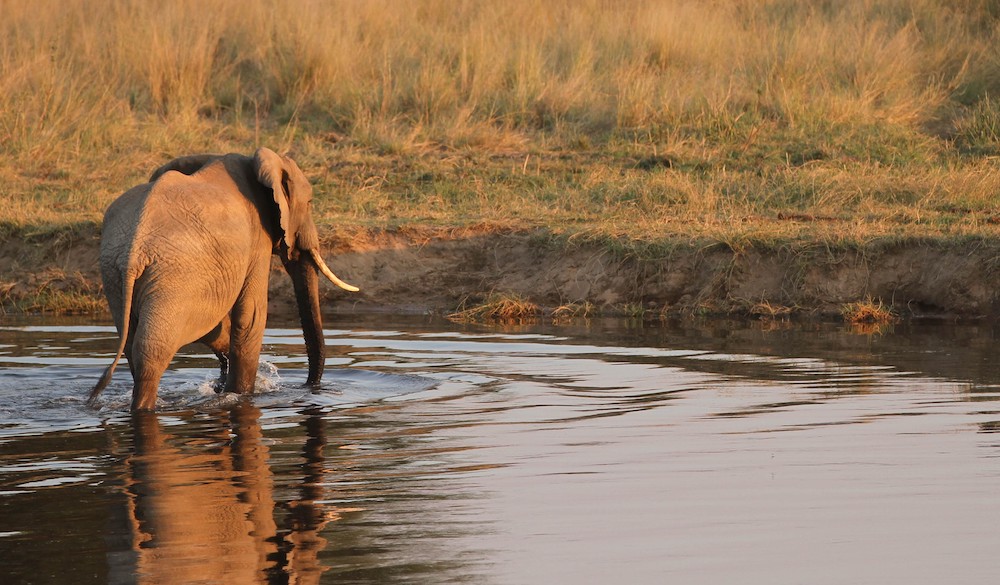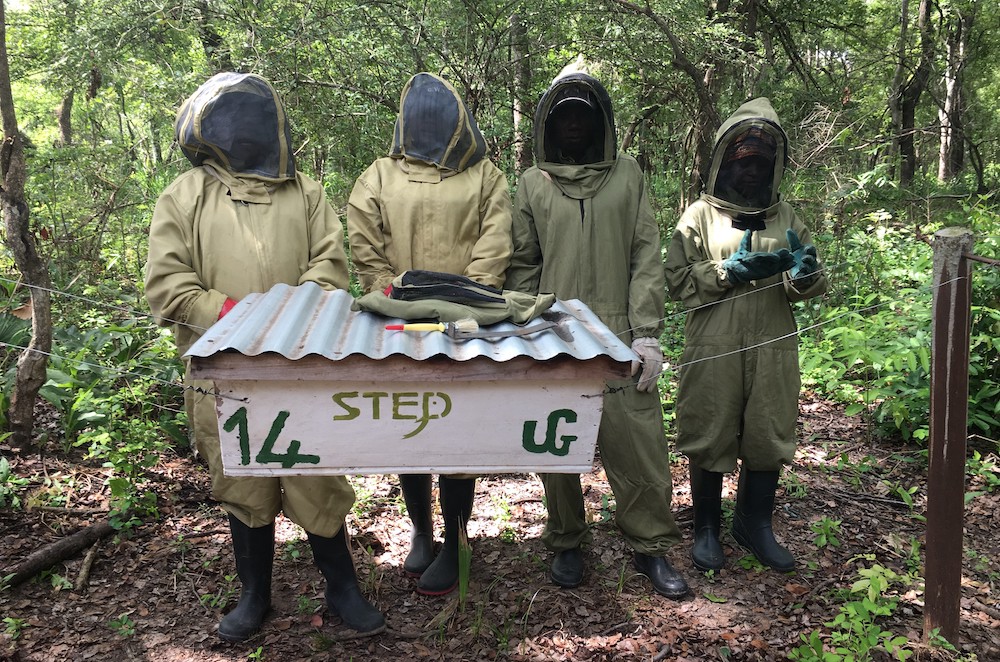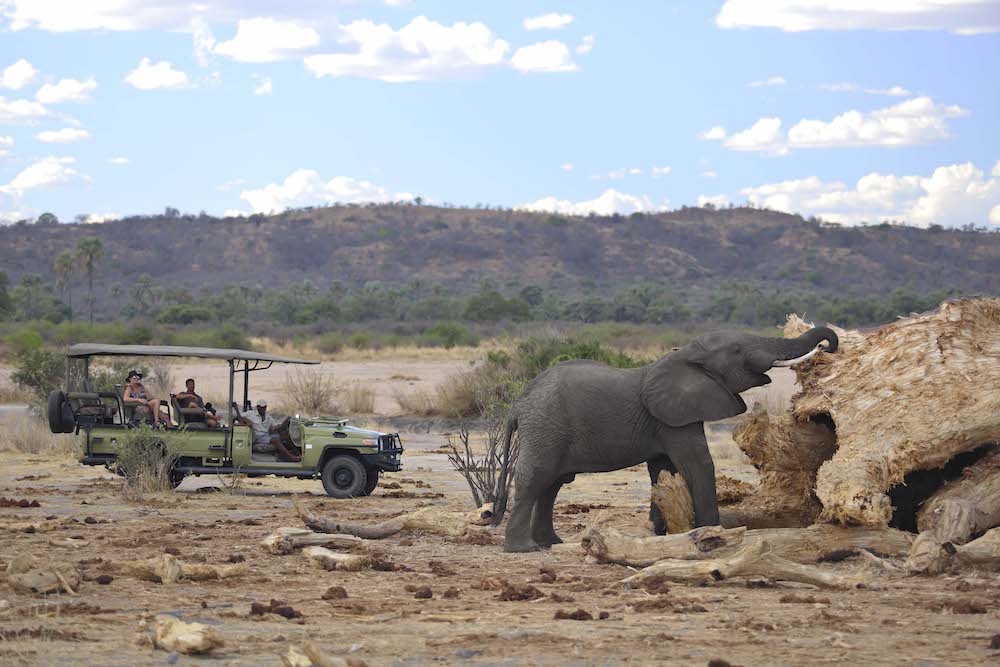Southern Tanzania Elephant Program
“Dedicated to creating a peaceful future for elephants in southern Tanzania, and beyond.”
The Southern Tanzania Elephant Program (STEP) is an elephant conservation organisation whose mission is to secure protected areas for the future of elephants in conjunction with the welfare of people living around their boundaries. STEP works closely with farmers and communities to reduce the instances of human-wildlife conflict and create awareness around the importance of conservation.

During the dry season, elephants in Ruaha National Park will dig through the dry riverbed to access the water below.
STEP was founded in 2014 after its co-founder, Dr. Trevor Jones, had been involved in documenting threatened elephant corridors in southern Tanzania for the Tanzania Wildlife Research Institute. Today, STEP is active in three major eco-systems of southern Tanzania: Ruaha-Rungwa, Udzungwa Mountains, and the Selous ecosystem of Nyerere National Park and Magombera Nature Reserve. Combined, these three ecosystems comprise a surface area of roughly 140’000km2 and play home to more than half the population of Tanzania’s elephant. Elephants make use of wildlife corridors between these three ecosystems, allowing them to traverse the landscape as access to water and abundance of grazing fluctuates throughout the seasons.

Elephants will cover hundreds of kilometres to access food and water during the dry season, relying on age-old wildlife corridors.
Today, most of the wildlife corridors have been encroached upon by human settlement and land use for agriculture, limiting available safe space for wildlife and leading to increased incidences of human-wildlife conflict. STEP acknowledges that to ensure long term human-elephant coexistence within shared spaces, the negative impacts of elephants on people, and vice versa, need to be mitigated. This means providing communities with education and skills to enhance the capacity for coexistence.
One of the most successful projects to date has been the beehive fence. STEP provides farmers with beekeeping training and initial materials for the creation of their beehive fences, as well as financial management skills for the ongoing successful management of the project. Once operational, the projects are entirely owned and run by the farmers, with STEP available to provide assistance or advice as needed. The beehive fences reduce crop losses by deterring elephants from raiding farms, while simultaneously providing farmers with an additional source of income through the sale of their honey. This approach also reduces the reliance upon agriculture, preventing further unnecessary encroachment into wildlife corridors.

Beehive fences serve the dual function of providing an elephant-friendly form of crop protection, whilst creating an additional income stream through the sale of honey. Image: STEP
With a current portfolio of five properties falling within the ecosystems of STEP’s focus, it was a natural progression for Asilia to partner with, and support, the work being performed by the program. Every guest that stays in an Asilia camp actively contributes towards our Positive Impact initiatives through the $5 Conservation Charge applied to each night. The Asilia Giving platform raises additional funds, all of which go directly to the Positive Impact implementing partners supported by Asilia. Since 2018, Asilia has partnered with STEP, providing financial funding and raising awareness for the crucial work being performed on the ground.

The inner wood of a baobab tree is rich in water, making it a favourite food source for elephants during the dry season.
Guests staying at Jabali Ridge or Jabali Private House have the opportunity for a first-hand account of the program in the form of a presentation. With sufficient prior arrangement, a team member from STEP can join guests in camp to talk through the work being done, why it is necessary, and explain some of the finer details and inner workings of the program.
More Wildlife & Conservation Articles

Leopard vs Cheetah : Can You Tell The Difference
01 April 2020How often do you mistake a leopard for a cheetah or vice versa? I’m sure we’v...

What’s the difference? National Parks, Game Reserves, and Conservancies in East Africa
02 February 2020To most of us, a national park, game reserve, or conservancy are all the same...

Electric Vehicles: The Future Of East African Safari Travel?
12 January 2020October 2019 saw the arrival of our first electric, solar-powered safari vehi...

Guest Gallery: The Serengeti At Its Best
27 November 2019We recently had the pleasure of welcoming guests, Chris and Monique Fallows t...





